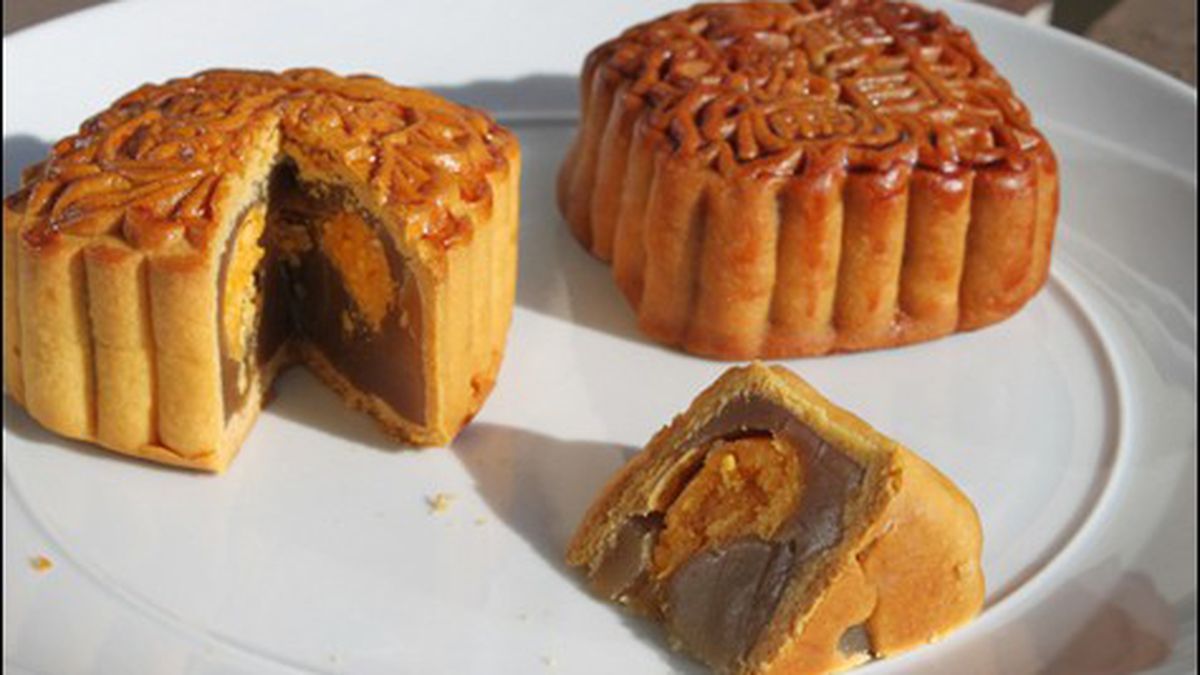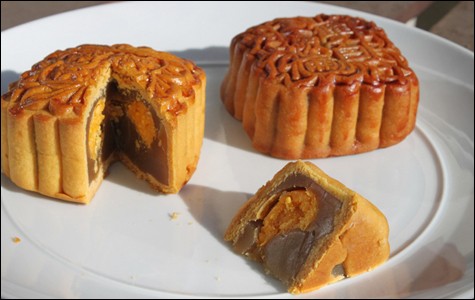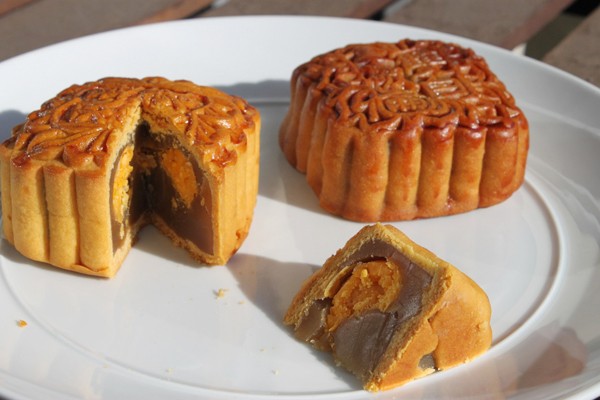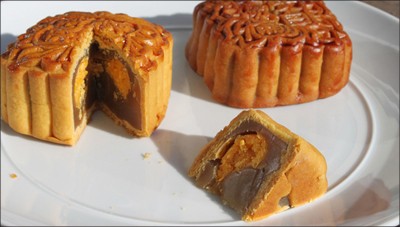This year’s Mid-Autumn Festival falls on Sunday, September 30, and for millions of Chinese people around the world, that means one thing: mooncake time.
Any holiday worth its salt is tied inextricably to something good to eat, and the East Asian harvest moon celebration is no exception. Nothing can beat the roadside barbecues that were a traditional part of the festivities when I lived in Taiwan — squatting with friends next to a jury-rigged grill made from the rim of an old tire, a Tupperware container full of marinated beef in one hand and a mosquito zapper in the other.
Short of those rollicking good times, there are always mooncakes, iconic pastries with a dense, sweet-bean-paste filling. Many of the Bay Area’s Asian markets will carry attractive tins of the big-name imported brands, but you don’t need to go any farther than Oakland Chinatown to find a freshly baked version.
If you haven’t purchased mooncakes before, note that they come with different fillings. Red-bean paste is more familiar to Westerners, but amber-hued white-lotus-seed paste is more classic and luxurious, with a fragrant and slightly caramelly sweetness.
Each mooncake can also contain one or more salted-duck-egg yolks, which are symbolic of the full moon and add an appealing salty-and-sweet dynamic. The ornate imprint on top of each cake indicates (in Chinese) the type of filling and, sometimes, the name of the bakery. Any more than a single yolk inside and the mooncake will be square rather than round.
Last week, I picked up double-yolk white-lotus-seed paste mooncakes from two bakeries in Oakland’s Chinatown — Wonder Food Bakery (340 9th St.) and Napoleon Super Bakery (810 Franklin St.) — and thought both were tasty. Priced at $5, Wonder’s version was a dollar more expensive, but had the superior lotus-seed-paste filling; the Napoleon filling was somewhat drier and grainier. Then again, the pastry “crust” of Napoleon’s mooncake was thinner and more delicate.
If you aren’t a connoisseur, the biggest difference might be this: Of the two bakeries, only Wonder Food had English signs labeling the mooncakes. Napoleon had lower prices (and, consequently, longer lines), but the signs were all in Chinese — so you’d need to explain what you want.
Finally, a word to the wise: Don’t pick the mooncake up and munch on it like it’s a big cookie. The way to eat it is to cut it into thin wedges and serve with hot Chinese tea. One or two slices is all you’ll want at a time.
Meatless Mondays
If you’ve taken BART his month, perhaps you’ve spotted a new ad meant to prick the conscience: an image of happy piglets frolicking in an open field juxtaposed with a shot of a few sickly-looking pigs locked up in cages. The tagline to the ad reads, “95% of people want farm animals to be treated well. 99% of farm animals are not. Help end cruelty by participating in Meatless Mondays.”
The ad was created by Berkeley-based Factory Farming Awareness Coalition (FFAC), the organization that received second place in a Facebook poll sponsored by BART’s sustainability-focused Blue Sky Program this past spring. The top three vote-getters, in a lineup of local nonprofits, got a month’s worth of free advertising: 120 ads aboard the BART trains themselves and another 40 spread throughout the various stations.
Katie Cantrell, the UC Berkeley grad who founded the Factory Farming Awareness Coalition two years ago, explained that the organization’s focus is on educating the public about the negative impacts of factory farming — on animals, workers, the environment, health, and so forth.
The group decided that encouraging people to abstain from meat once a week would be a way to empower participants to make a difference in all of those areas. “It’s just a great and easy way for people to actually take action,” Cantrell said.
The national campaign for Meatless Mondays was started in 2003 by the Johns Hopkins-based Center for a Liveable Future. The focus of the initial campaign was on reducing meat consumption as a matter of public health, but over the years many organizations have promoted the idea from a number of different angles — the effect that eating less meat would have on the welfare of farm animals, for instance.
According to Cantrell, the statistics cited in the BART ad are based on a 2007 nationwide phone survey on consumer preferences for farm-animal welfare (for the 95 percent figure) and an examination of the 2002 USDA Census of Agriculture results performed by the advocacy group Farm Forward (for the 99 percent calculation).
Meanwhile, the Berkeley group created a different advertisement for BART stations that’s based on another eye-catching statistic: It takes thirteen times more fossil fuels to produce a pound of beef than a pound of plant-based protein. The ad goes on to encourage viewers to forego meat on Mondays as a way to “ensure a sustainable future.” Cantrell said both ads should stay up through the first week of October.

















